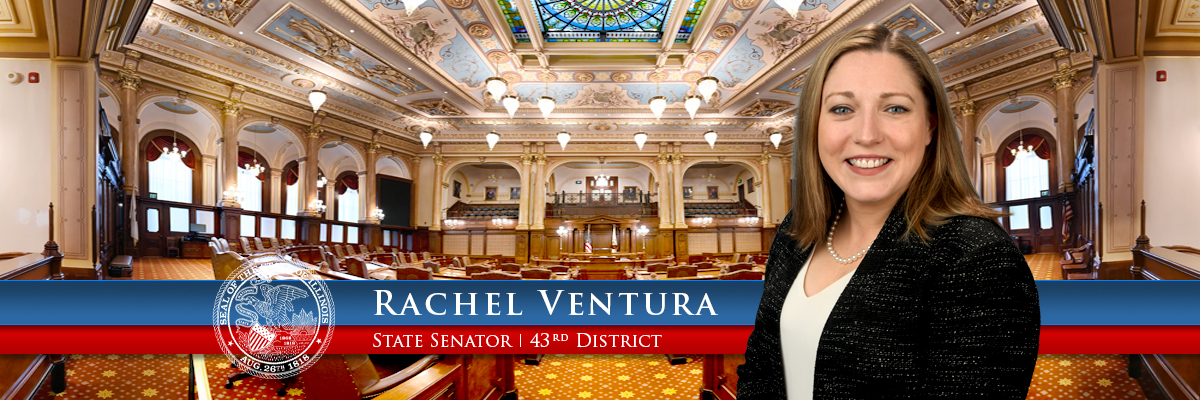- Details
In environmental news, in an article published by Grist, they highlighted the need to address the state's coal ash pollution to stop the invasive Asian carp from entering the world's largest freshwater ecosystem — Lake Michigan.
This article points out the need to prevent an ecological disaster from reaching Lake Michigan. Now more than ever we need to increase our environmental efforts on a statewide level to address coal ash including barricades like the Brandon Road Interbasin Project.
As mentioned in the article: "The longer the state waits to secure and clean up the site, the longer the carp have an opportunity to infiltrate Lake Michigan and the waterways beyond".
Read the full article here.
- Details
From the Illinois Environmental Protection Agency:
PUBLIC HEALTH NOTICE:
One or more Per- and Polyfluoroalkyl Substances (PFAS) have been detected in the finished water in local locations' public water supply at levels exceeding 35 Illinois Administrative Code Part 620 Class I (potable) groundwater quality standards.
The Community Water Supplies (CWS) in or near District 43 that received thenotification below include the following:
- Channahon
- Crest Hill
- Stateville Correctional Center – connected to Crest Hill, the CWS tested
- Criswell Court Mobile Home Park
What are PFAS?
PFAS are synthetic chemicals manufactured for their oil- and water-resistant properties. PFAS use is widespread. PFAS have been used in industrial processes since the 1940s and are in many everyday consumer products (food packaging, non-stick cookware, carpet, upholstery, clothing, and cosmetics).
How does PFAS enter the environment?
PFAS can enter the environment, including groundwater, through various pathways, including spills, leaks, and the disposal of products containing PFAS, as well as through industrial processes and waste-water treatment plants. Current scientific literature indicates that people are most exposed to PFAS by ingesting contaminated food and water. PFAS does not have any taste, color, or odor in drinking water.
How does PFAS impact human health?
PFAS can build up in the human body over time. According to the U.S. EPA, current peer-reviewed scientific studies have identified adverse health effects from exposure to PFAS that may include:
- Reproductive effects such as decreased fertility and high blood pressure in pregnant women;
- Developmental effects in children such a low birth weight;
- Increased risks of developing certain types of cancer including prostrate, kidney, and testicular cancers;
- Reduced ability of the body’s immune system to fight infections including reduced vaccine response;
- Interference with the body’s natural hormones; increased risk of thyroid disease; and
- Increased cholesterol levels and/or risk of obesity.
Exposure to PFAS does not necessarily mean that a person will experience any adverse health effects. The possible health effects from PFAS depend on numerous factors, including how much a person is exposed, so it is important to minimize PFAS exposure.
What can be done to address PFAS exposure?
PFAS can be removed from drinking water with in-home treatment technologies, such as carbon filtration and reverse osmosis. Carbon filters can be installed at the point-of-use, such as your kitchen faucet or refrigerator, or the point-of-entry to your home. Carbon filters are also available with filtered water pitchers. Likewise, reverse osmosis systems can be installed under your kitchen sink to treat water primarily used for drinking or cooking. In-home treatment may not always reduce PFAS below levels of concern, as the effectiveness of treatment is largely based on the amount of PFAS contamination and continued maintenance of the treatment system.
Are Public Water Supplies required to address PFAS?
Yes. Federal law requires that all public water supply systems take action to meet PFAS drinking water standards by April 26, 2029.
Where can I obtain additional information about PFAS?
Further PFAS resources, including additional information on health effects and ways to reduce exposure, is available on the Illinois EPA PFAS webpage here.
Confirmed sampling results for your Public Water Supply System are available on the Illinois EPA Drinking Water Watch system here and on the U.S. EPA website here. If you have questions or would like more information about your water quality, please contact your water provider.
- Details
Originally published on Grist on Oct. 21, 2024, read more about the first commerical carbon sequestion leak in Illinois here.
- Details

Investing in communities and infrastructure is paramount for driving economic development, enhancing quality of life, and ensuring long-term sustainability. The future will focus on technology and it is so important that we view broadband as a utility of necessity. That is why I support public broadband to compete in the free market, keep costs low, and ensure access for everyone. Recognizing this significance of all infrastructure, I championed the passage of these bills to tackle critical needs.
Senate Bill 851 places a strong emphasis on upgrading broadband connectivity in essential public institutions such as schools, libraries, and correctional facilities. This initiative guarantees fair access to vital services and resources for all residents, particularly those in underserved areas. With improved broadband access, students can access online learning resources, businesses can engage in e-commerce, and communities can stay connected, fostering economic growth and innovation. Senate Bill 1437 looks to expand the middle mile of broadband fibers in the state to provide reliable broadband service to all areas and begin creating the public network needed for the future.
Concurrently, Senate Bill 1438, known as the Illinois Dig Once Act, aims to streamline infrastructure deployment by minimizing redundant excavations along transportation corridors. By coordinating the installation of electric lines, water pipes, broadband networks and other public utilities, this legislation optimizes the use of resources and reduces disruption to communities. Efficient infrastructure deployment not only saves time and money but also enhances the resilience of critical systems, ensuring reliable access to essential services.
These legislative initiatives reflect our proactive stance in modernizing Illinois's infrastructure. By bolstering broadband connectivity and streamlining infrastructure deployment, we are laying the foundation for economic resilience and fostering inclusive growth statewide. With increased storms, the more lines that can be laid underground, the less impact everyone will experience. Additionally, I'm actively advocating for increased infrastructure investment in the 43rd District.
Senate Bill 2784, the Cargo Transportation Fee Act, is another initiative aimed at addressing infrastructure needs in our district. This bill proposes levying a fee on cargo vehicles leaving inland ports to support the maintenance of roads impacted by heightened truck traffic. This investment is particularly crucial for areas like the CenterPointe Intermodal Port in Joliet, where infrastructure upgrades are essential to support economic development and ensure the safe and efficient movement of goods.
Through these efforts, we are working to build stronger, more resilient communities and ensure that every resident has access to the resources and opportunities needed to thrive.
Page 1 of 2





